Abstract
The suitability of the Shahidi-Ferguson perfringens, TSC (tryptose-sulfite-cycloserine), and oleandomycin-polymyxin-sulfadiazine perfringens agars for presumptive enumeration of Clostridium perfringens was tested. Of these, the TSC agar was the most satisfactory. The TSC agar method was improved by eliminating the egg yolk and using pour plates. The modified method allowed quantitative recoveries of each of 71 C. perfringens strains tested and is recommended. For confirmation of C. perfringens, the nitrite test in nitrate motility agar was unreliable, particularly after storage of the medium for a few days. In contrast, positive nitrite reactions were obtained consistently when nitrate motility agar was supplemented with glycerol and galactose.
Full text
PDF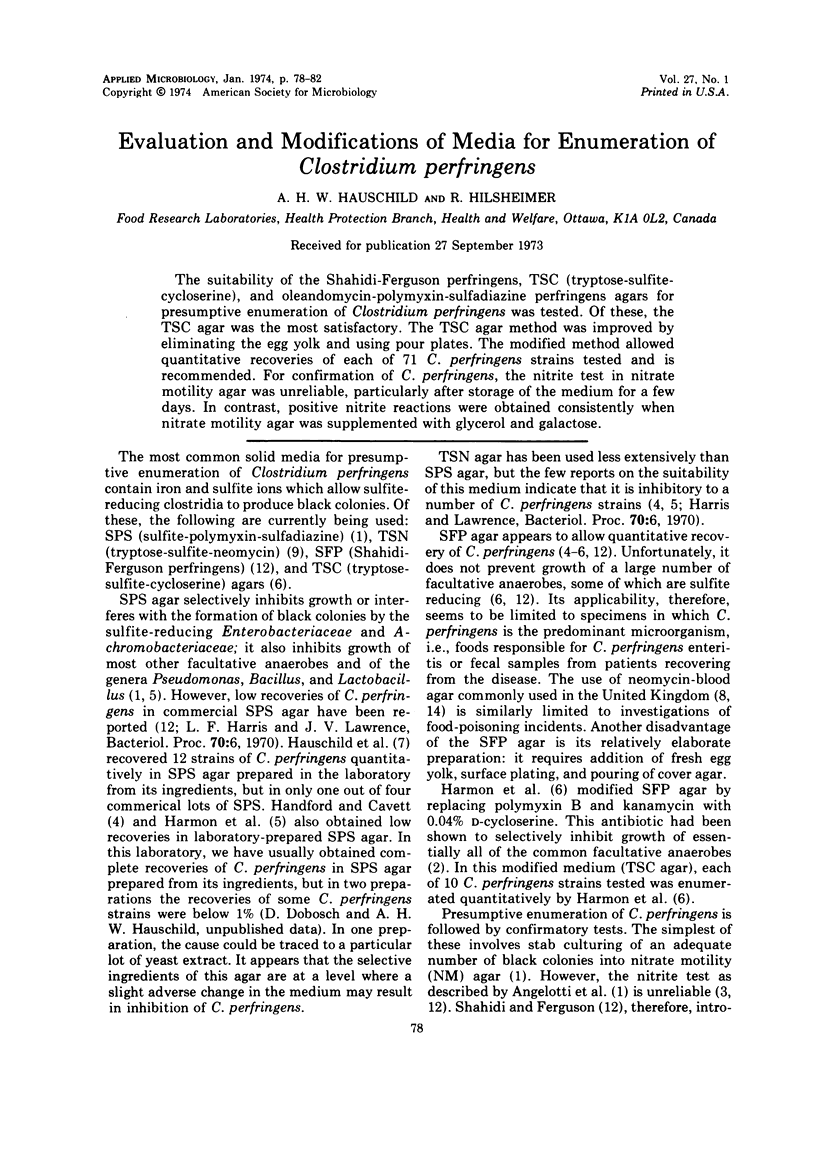
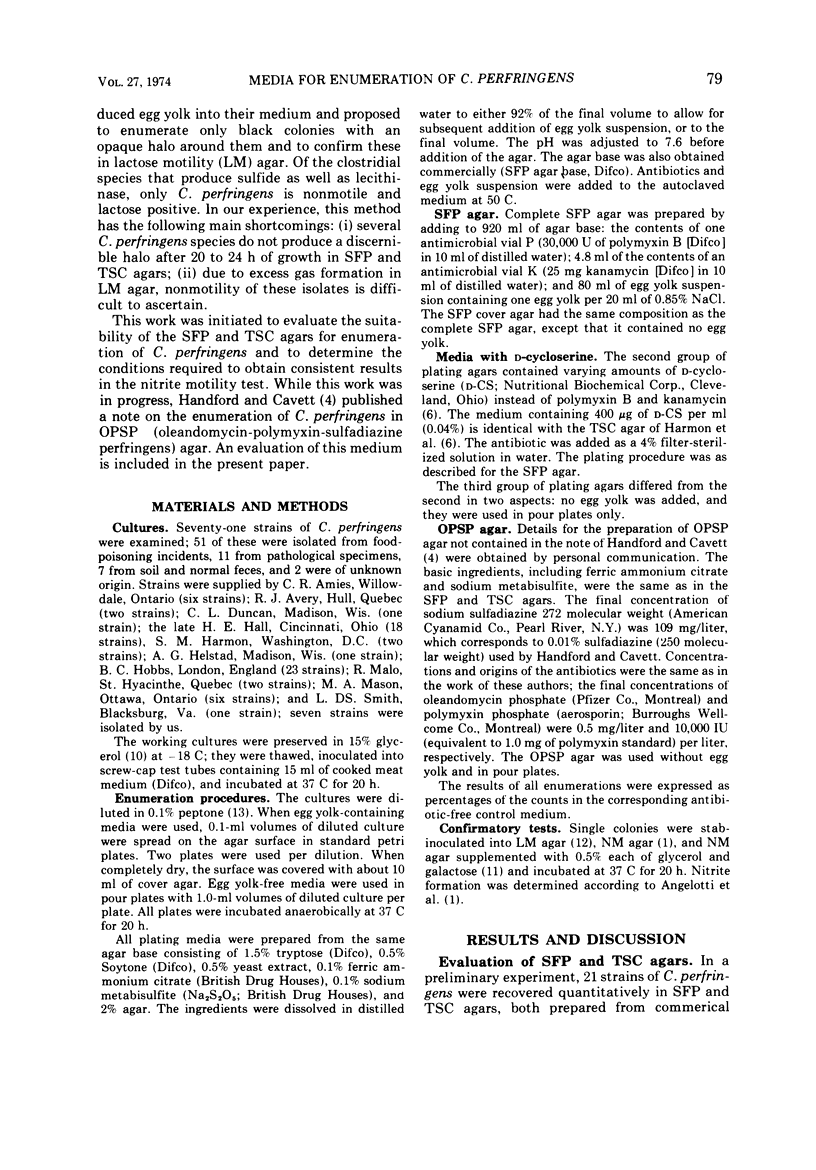
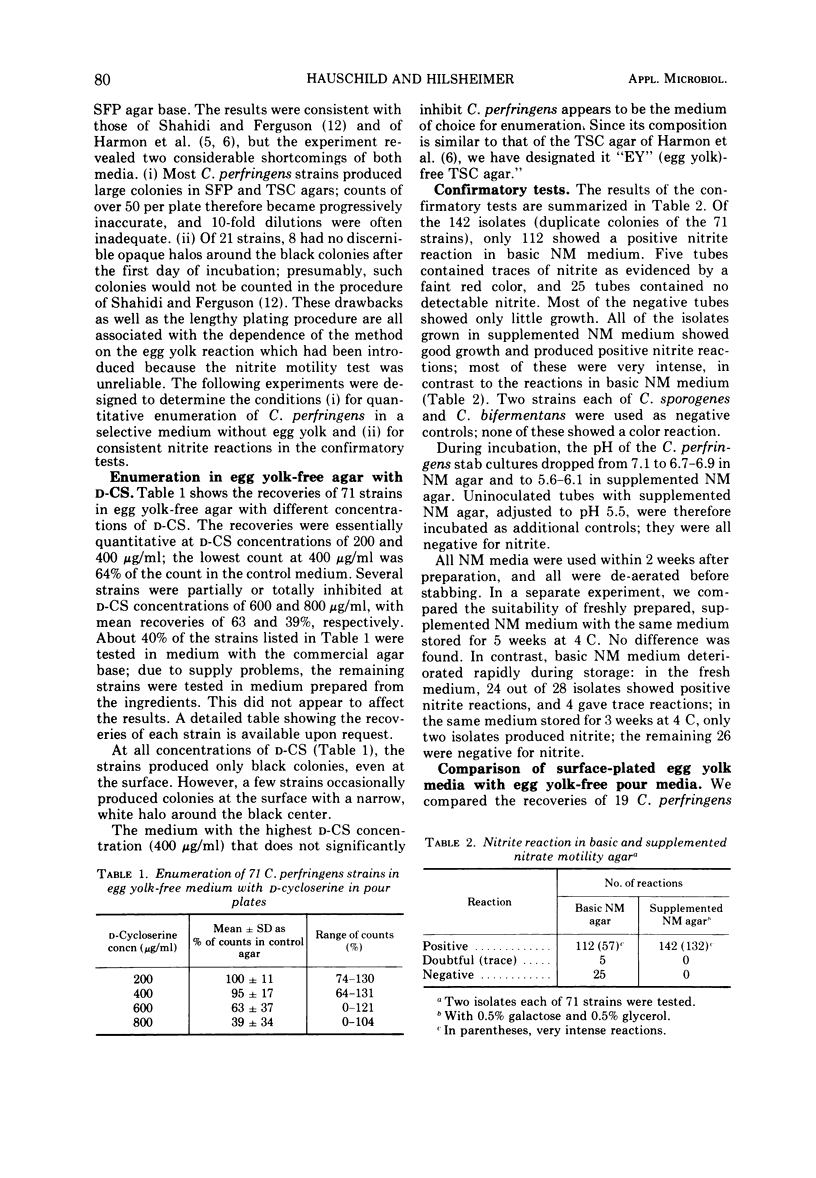
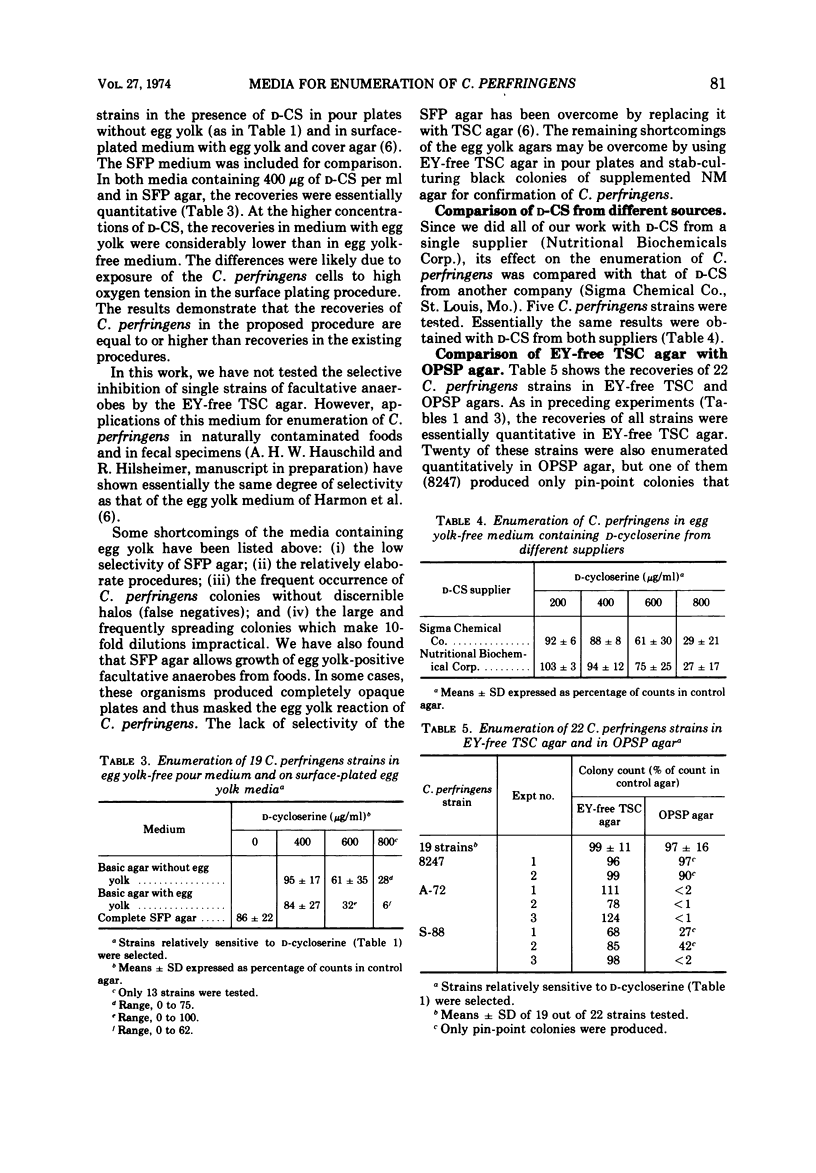
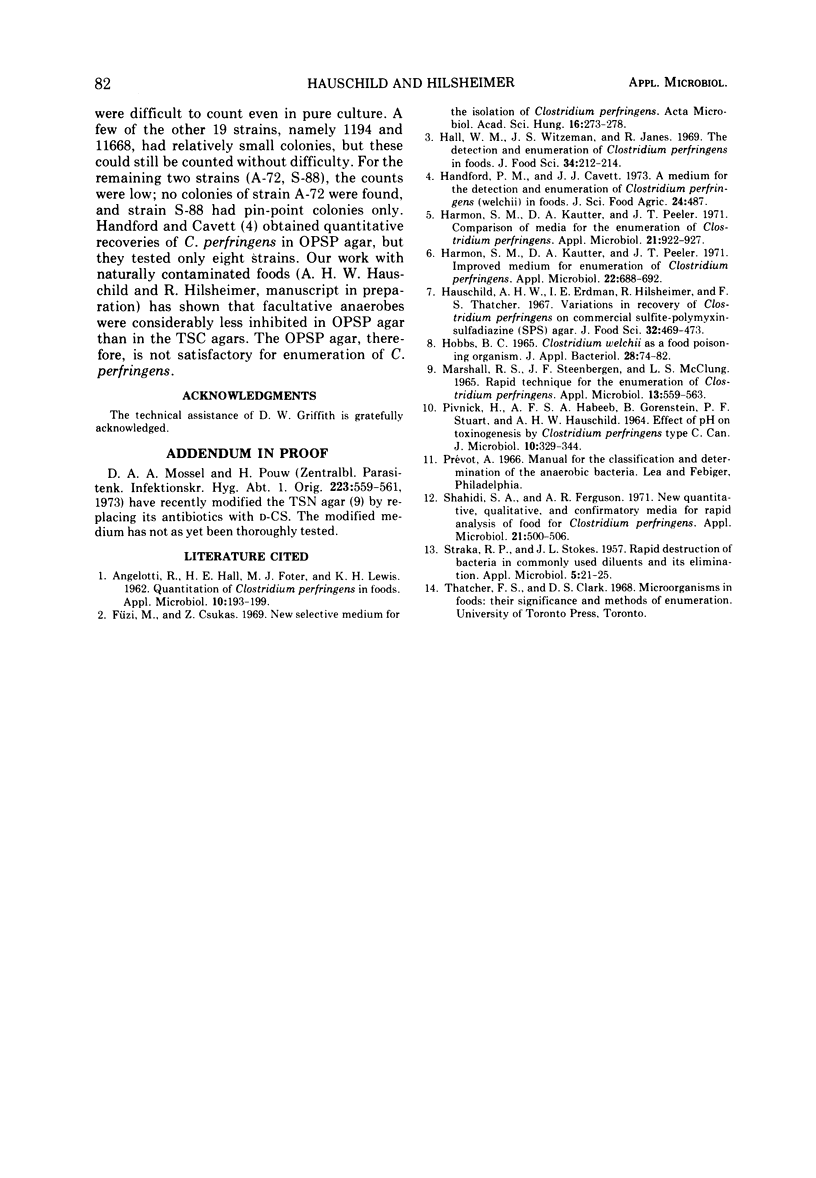
Selected References
These references are in PubMed. This may not be the complete list of references from this article.
- ANGELOTTI R., HALL H. E., FOTER M. J., LEWIS K. H. Quantitation of Clostridium perfringens in foods. Appl Microbiol. 1962 May;10:193–199. doi: 10.1128/am.10.3.193-199.1962. [DOI] [PMC free article] [PubMed] [Google Scholar]
- Füzi M., Csukás Z. New selective medium for the isolation of Clostridium perfringens. Acta Microbiol Acad Sci Hung. 1969;16(3):273–278. [PubMed] [Google Scholar]
- Harmon S. M., Kautter D. A., Peeler J. T. Comparison of media for the enumeration of Clostridium perfringens. Appl Microbiol. 1971 May;21(5):922–927. doi: 10.1128/am.21.5.922-927.1971. [DOI] [PMC free article] [PubMed] [Google Scholar]
- Harmon S. M., Kautter D. A., Peeler J. T. Improved medium for enumeration of Clostridium perfringens. Appl Microbiol. 1971 Oct;22(4):688–692. doi: 10.1128/am.22.4.688-692.1971. [DOI] [PMC free article] [PubMed] [Google Scholar]
- MARSHALL R. S., STEENBERGEN J. F., MCCLUNG L. S. RAPID TECHNIQUE FOR THE ENUMERATION OF CLOSTRIDIUM PERFINGENS. Appl Microbiol. 1965 Jul;13:559–563. doi: 10.1128/am.13.4.559-563.1965. [DOI] [PMC free article] [PubMed] [Google Scholar]
- Mossel D. A., Pouw H. Studies on the suitability of sulphite cycloserine agar for the enumeration of clostridium perfringens in food and water. Zentralbl Bakteriol Orig A. 1973 May;223(4):559–561. [PubMed] [Google Scholar]
- PIVNICK H., HABEEB A. F., GORENSTEIN B., STUART P. F., HAUSCHILD A. H. EFFECT OF PH ON TOXINOGENESIS BY CLOSTRIDIUM PERFRINGENS TYPE C. Can J Microbiol. 1964 Jun;10:329–344. doi: 10.1139/m64-045. [DOI] [PubMed] [Google Scholar]
- STRAKA R. P., STOKES J. L. Rapid destruction of bacteria in commonly used diluents and its elimination. Appl Microbiol. 1957 Jan;5(1):21–25. doi: 10.1128/am.5.1.21-25.1957. [DOI] [PMC free article] [PubMed] [Google Scholar]
- Shahidi S. A., Ferguson A. R. New quantitative, qualitative, and confirmatory media for rapid analysis of food for Clostridium perfringens. Appl Microbiol. 1971 Mar;21(3):500–506. doi: 10.1128/am.21.3.500-506.1971. [DOI] [PMC free article] [PubMed] [Google Scholar]


